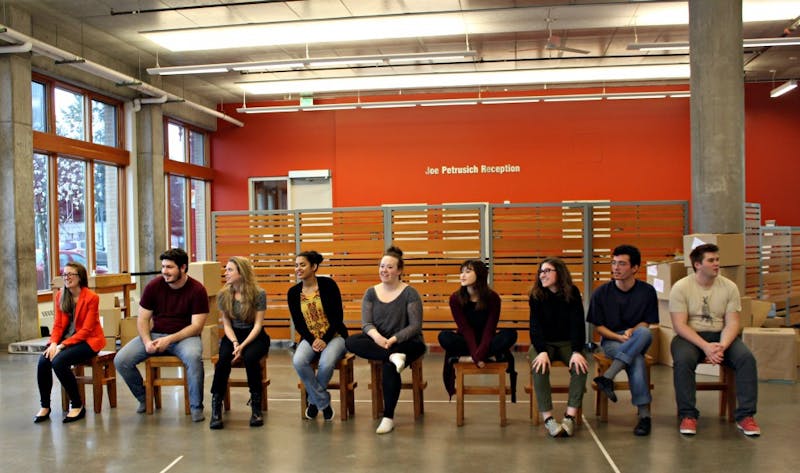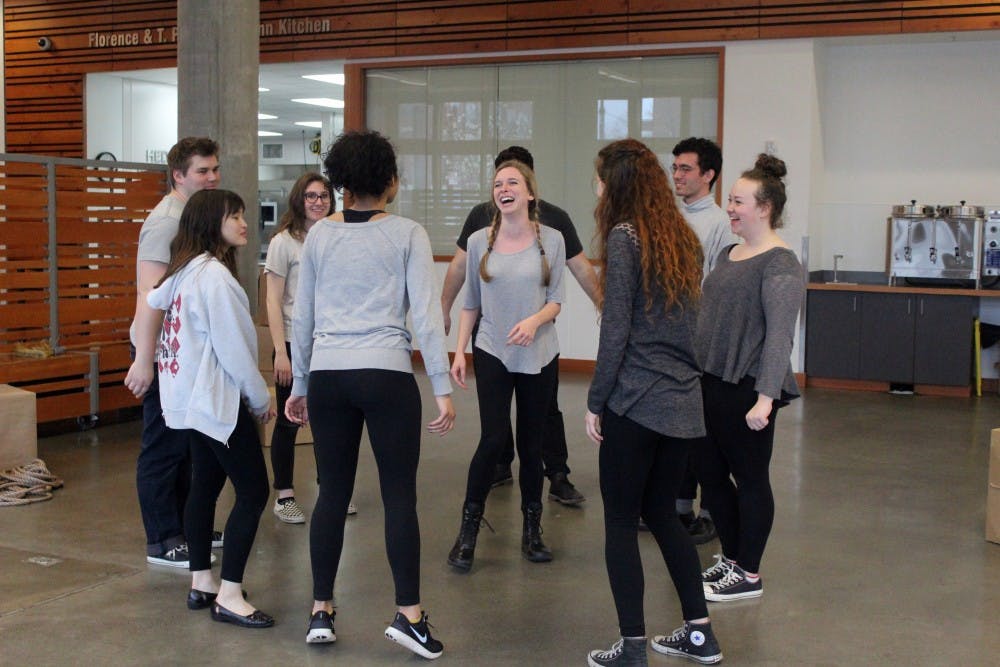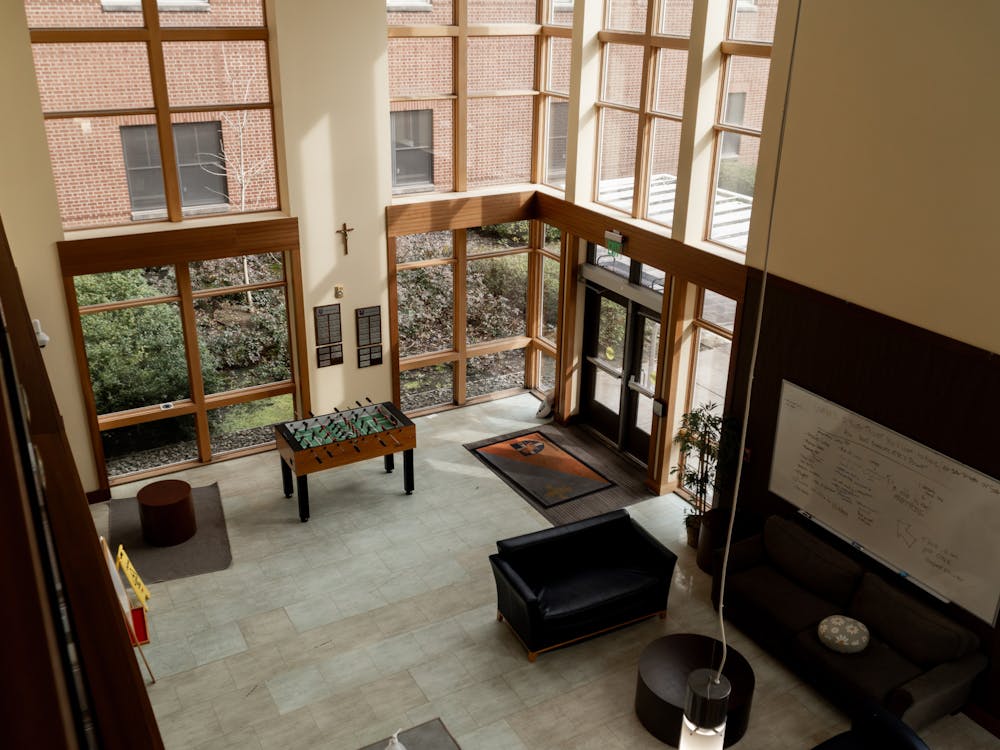Tables and chairs were pushed aside to line the perimeter of the Blanchet House of Hospitality’s large common room. The audience sat on small wooden stools facing the front of the room which was deemed ‘the stage’, though it was not raised or separated from the audience in any way.
There were no microphones, no lighting, no major theatrical effects. Cardboard boxes, duct tape, ropes and a broom made up the minimalist set. After some introductory words from the director, the brave nine students walked out, lined up and began to speak.
The Blanchet House was not built to house a performance. It was built to house and assist men struggling with addiction, unemployment, family or home issues. But on Sunday, March 26, it housed both.
"Home" is a devised piece of theater, meaning the show did not originate with a script but rather it came together through cast collaborations and improvisations. The lines, movement and story were constructed by University of Portland graduate student and director Kelly Wetherald and her mighty ensemble of nine. The performance highlights the homeless problem in Portland by advocating that a home can mean so many different things to different individuals.
“There wasn’t a script that was saying the things I wanted to say or explores this problem,” Wetherald said. “And to me, the theater is a safe space where you can talk openly about things, and being in an educational setting I figured — why not create it ourselves.”
Wetherald worked on this project for over two years now. Her inspiration came from both her interest in grass root-based creative work for social change and her job as a Development Manager at the Blanchet House of Hospitality, a safe place for those in need of food, shelter, and other aid in the Portland area.
A large part of this performance was trying to settle the misconceptions many have about the people Wetherald interacts with on a daily basis. Some of the interviews used in writing the script were done with men at the Blanchet House, and the Sunday performance connected those men’s voices with the support of the UP community.

“This show has a farther reach than just the Bluff,” Wetherald said. “We as a community have a responsibility to help people create or discover a home for themselves.”
The performance was made up of two acts. The first involved characters who embodied the experiences of a variety of people the cast had interviewed. These people ranged from a five-year-old girl being babysat to a fifty-year-old man from the Blanchet House, and each were asked a series of questions regarding their interactions with homelessness or what having a home means to them.
The second depicted the casts’ own perspectives and outlooks on their interactions with homes and homelessness. The stories are told in short, two-minute scenes and monologues depicting the struggles, memories, glory and battles that come with having, or not having, a sense of home.
Though the fluid nature of Home was intimidating to some actors, others viewed it as a creative experiment. Freshman ensemble member Kai Hynes said that devised theater is unlike any performance he has done before, but Hynes enjoyed the challenge.
“It was scary at first because we had no idea what we were doing and it can be really stressful and confusing at times,” Hynes said. “But it is an awesome and interesting creative process to be a part of. Kelly (Wetherald) wanted to be very conscience of [the ensemble] having a part in creating the script and the voices of the characters.”
This type of work is unlike anything that has ever been done at UP,” Wetherald said. “I hope that these actors continue to work and explore in this creative manner, as it increases the level of their work and digs into their characters better in the future.”








